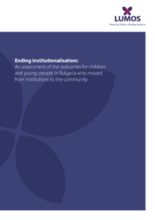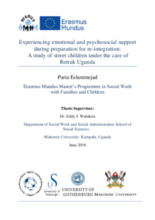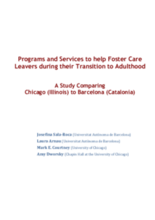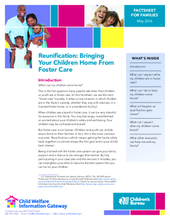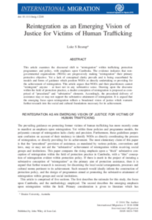Displaying 801 - 810 of 991
Compared to children in other placements, there is much less known about the characteristics and needs of children in the UK who are returned to their birth parents with a care order still in place.
This report shares outcomes to date for a group of 1,292 children and young people with disabilities who have transitioned out of large residential institutions (institutions) into small group homes (SGHs) in the community.
This thesis investigates children’s experience of psychosocial and emotional support of (nonparental) caregivers in residential facilities in preparation for their re-integration into family based care.
This paper presents selectively on the findings of two separate but related qualitative Irish studies exploring relationship-based approaches in residential child care practice, from the perspectives of both residential child care workers and young care leavers.
This study compares programs and services that support youth in care during their transition to adulthood and independent living in Chicago, USA to those in Barcelona, Spain.
Using the DFID sustainable livelihood approach, this qualitative study evaluated the social capital being accessed by adolescent girls transitioning from two institutions in Harare, Zimbabwe.
This Factsheet from the Child Welfare Information Gateway provides information for families who are reunifying after placement in foster care the US.
This exploratory research involved focus group consultations with seven child and family welfare agencies to investigate the impacts, barriers, benefits and limitations of cultural support planning for Indigenous young people in, and leaving care in, Victoria.
This paper reflects upon lessons learned by Retrak and explores the challenges and the benefits of developing a body of evidence on reintegration good practice.
This article examines the discoursal shift to “reintegration” within trafficking protection programmes and policy, with emphasis upon Cambodia.

